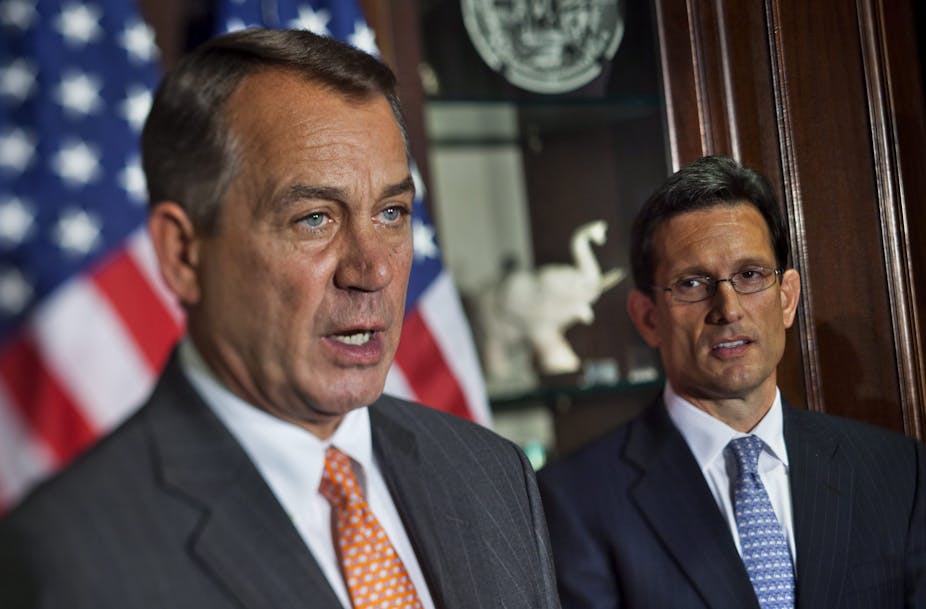I rang some people at big banks who do liquidity and balance-sheet management to see how they are preparing for the August 2 deadline for US debt funding.
They seemed remarkably sanguine. The feeling is that the President Barack Obama and the Republican-led Congress will take the US close to edge, but not over it.
I am not so sure. The positions of the two parties look very entrenched and hardline to me. They are so far apart that one or both parties will have to back down to get a deal done, and that is unlikely.
My guess is that one of three things will lead to a resolution. In order of likelihood they are:
The parties go past the deadline (over the edge) and Treasury will suspend payment of social security cheques and federal government wages and salaries, including military salaries. The resultant public uproar will then force the parties to do a deal — probably a short-term extension to the debt ceiling.
A meltdown in the markets before August 2 will force the parties to do a deal — again most likely a short-term extension. A meltdown means a collapse in stock prices. The US dollar could collapse, but that won’t precipitate a panic by the US public — it might even be seen as a good thing. US Treasury securities prices won’t collapse either, because despite everything US Treasury bills are still seen as a risk-free asset to US dollar investors.
A grand bargain will be worked out. A way out of the impasse is to take negotiations to a higher level. Both parties would need give up a lot to get a lot, so both can be seen as winners. For Republicans, giving up a lot means big tax increases. For Democrats it deep cuts to social security and medicare.
None of these scenarios would lead to a default on US Treasury securities. I think it is very unlikely that any coupon payments will be missed or that any bills won’t be fully paid out at maturity. That really would be a disaster.
Security holders will be treated like they have a senior claim on the US government and other claimants, such as government employees and dependents will have their payments frozen.
Republican resolve in this matter should not be underestimated. The Tea Party’s effect on the party has been dramatic.
It seems that no Republican member of Congress can afford to be seen to be soft on fiscal discipline, otherwise they will face a stiff challenge from a Tea Party candidate at the next primary for their seat.
Hats off to the Tea Party for bringing about that change because regardless of the current crisis, the US is heading for fiscal disaster unless it stops spending more than it taxes.
Another reason that the dispute will go to August 2 and perhaps beyond is that many Republicans are not convinced that passing the deadline will be that bad.
And, they may think that this crisis is an opportunity to hurt Obama – just think back to the impeachment and trial of President Clinton, when 50 Republican senators voted to remove an elected President from office for lying about consensual sex. That was a gross subversion of the constitutional process. Impeachment and trial is reserved for high crimes of such as bribery or treason.
The impeachment and trial of President Clinton showed how crazy the Republicans can get. They hated Clinton more than they loved America.
Don’t be surprised if Congressional Republicans get a bit crazy in this episode. They think they have Obama cornered.
He can’t agree to their demands, he can’t back down and if a crisis eventuates, then he will be blamed.
This was originally published as a blogpost on Core Economics. It has been reproduced with permission.

